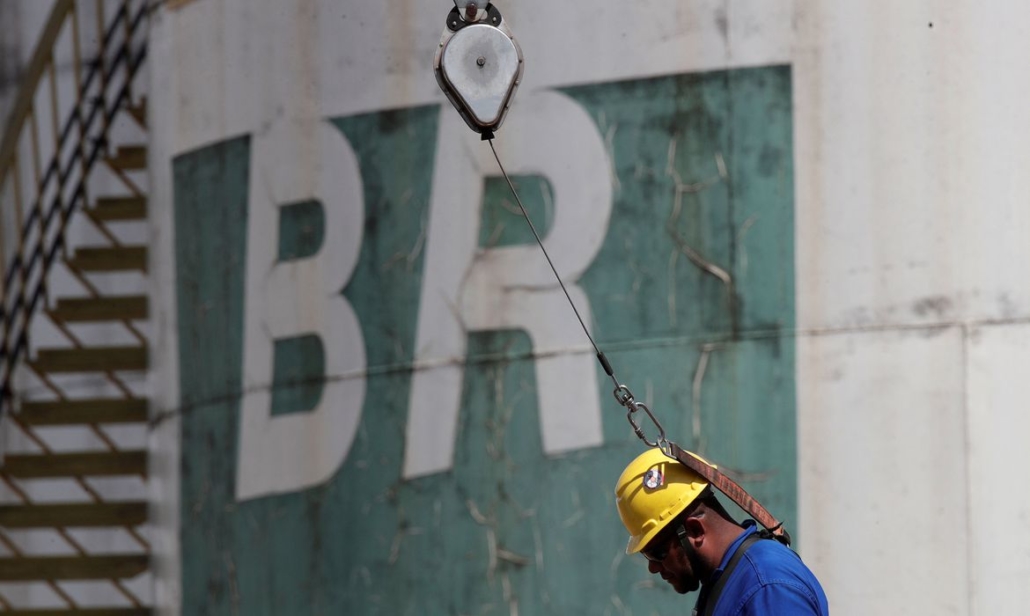Question mark is whether the fiscal policy will not get in the way
12/15/2022
The Central Bank remains confident that the high interest rates are being transmitted to economic activity and will have the desired effect to lower inflation. Obviously, the question is whether the fiscal policy will not get in the way.
The Central Bank’s Inflation Report released Thursday tries to argue that unlike what many analysts believe, there is economic slack, which is having an effect on prices.
In this study, the Central Bank divides the prices of services into two groups. One includes those that are more inertial, that is, prices that rise because of past inflation. The other includes prices linked to the economic cycle, which rise less when there is economic slack.
The results presented by the Central Bank show that prices of services linked to the cycle are lower and falling at the margin. This would be a sign that, in fact, there is economic slack.
This slack is estimated by the Central Bank at 0.8% for the third quarter of this year. The monetary authority said that this slack tends to grow further because the monetary tightening will be felt more strongly by the economy. At the end of this year, the economic slack will probably be at 1.1% and reach an even higher level at the end of next year, at 1.8%.
The Central Bank has revised its estimate of slack, which was a little higher. But this revision is due to the fact that the GDP was revised, and economic growth was higher than expected. This means lower slack, but nothing changes the qualitative assessment that there is slack.
The Central Bank’s estimate of economic slack is much higher than that estimated by the financial market, which sees the economy operating at total capacity in the third quarter of this year (technically an output gap of 0.1%) and an economic slack of 0.7% at the end of next year.
Some economic analysts have questioned the Central Bank, arguing that there is an analytical flaw. Inertial service inflation depends on different variables than cyclical service inflation. Thus, it would be incorrect to say that there is economic slack just because one is below the other.
/i.s3.glbimg.com/v1/AUTH_37554604729d4b2f9f3eb9ad8a691345/internal_photos/bs/2021/i/v/ae4plwRcaByTN1FWsNyA/080721diogo15.jpg)
Diogo Guillen — Foto: Silvia Zamboni/Valor
Confronted with this question, the Central Bank’s director of economic policy, Diogo Guillen, explained that this part of the report illustrates what a set of models used by the Central Bank, which points to the existence of economic slack, says. In this part, in the most recent data, the inflation of services linked to the cycle is receding.
In the section of the Inflation Report where the Central Bank analyzes short-term inflation, there is also some of the monetary authority’s view on the effect of economic slack on inflation.
The monthly readings came higher than expected, partly due to fresh food inflation. But they were not so high thanks to services. “Services inflation was significantly lower than expected, with emphasis on the more favorable dynamics of its underlying component.”
Mr. Guillen has argued precisely that one should look at inflation to identify the effect of economic slack. In fact, the economic slack is calculated in order to know what is going to happen to inflation.
In short, the Central Bank’s report shows that it sees monetary policy working as expected, confirming a scenario in which inflation falls toward the target. Uncertainty about the next administration’s fiscal policy is one thing that may get in the way.
All the noise surrounding the public accounts since President-elect Luiz Inácio Lula da Silva’s victory in the elections has already started to enter Central Bank’s scenario, albeit incipiently.
The Central Bank’s inflation projections have been somewhat stable in recent months, indicating a price hike of 3.3% in mid-2024, basically in line with the targets. But within this stability, some factors accelerate inflation, while others slow it down. In the end, they cancel each other out.
The inflation report lists factors that, since September, have acted in the direction of raising the inflation projection: the short-term inflation surprise and a lower economic slack than previously estimated.
But some forces reduce the inflation estimate. Among them is the fact that the market expects interest rates to start falling only in August, not in June as previously estimated. There is also the fact that the level of economic uncertainty is higher.
These two facts are linked to fiscal uncertainty, which makes the monetary tightening and financial conditions more severe than expected, pushing the economy into a downward spiral.
*By Alex Ribeiro — Brasília
Source: Valor International

/i.s3.glbimg.com/v1/AUTH_37554604729d4b2f9f3eb9ad8a691345/internal_photos/bs/2022/p/j/Py5L5WRiWldiAr9Lu50w/101199156-mariz-20-20pa-20brasilia-2016-11-2022-20-20aloizio-20mercadante-20-20gabinete-20de-20transi-c3-87-c3-83o-20-20ccbb-20ger.jpg)
/i.s3.glbimg.com/v1/AUTH_37554604729d4b2f9f3eb9ad8a691345/internal_photos/bs/2022/Q/6/OlD1aSRlW0ZsjSGoAp7Q/financiamento-floresta-20de-20eucalipto-20da-20suzano-cred-ricardo-20telles-divulgacao.jpg)

/i.s3.glbimg.com/v1/AUTH_37554604729d4b2f9f3eb9ad8a691345/internal_photos/bs/2022/K/O/J5MU4DRbAAX68TwAaXQQ/bancocentral.jpg)

/i.s3.glbimg.com/v1/AUTH_37554604729d4b2f9f3eb9ad8a691345/internal_photos/bs/2022/E/J/CGfA5GTKica1MjC67hTQ/andrew-schaap-1800x1200.jpg)
/i.s3.glbimg.com/v1/AUTH_37554604729d4b2f9f3eb9ad8a691345/internal_photos/bs/2022/O/e/tBwQRNSjudSxFHLlkTYA/121222abdan10.jpg)

/i.s3.glbimg.com/v1/AUTH_37554604729d4b2f9f3eb9ad8a691345/internal_photos/bs/2022/g/t/v7YbpCTKeRh0P7kKO1cw/27072021korin051.jpg)